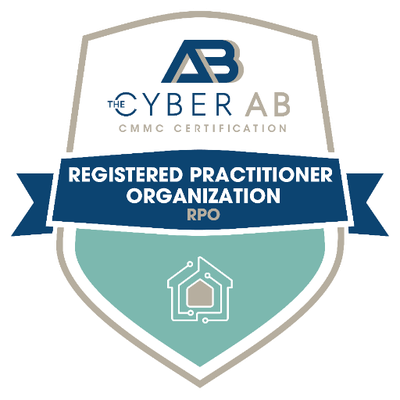
Should I Hire an IT Consultant?
Folks, you’ve got to watch out for these ‘so-called’ IT consultants.
They may not have your business’s best interest at heart – and in some cases, they could be straight up hurting you.
We know. It sounds crazy. IT consultants are supposed to be there to, well, consult you in making the best decisions for your business.
Turns out that not all consultants are on your side. Some are salespeople dressed as experts – overselling, upcharging, and recommending technical solutions your company doesn’t actually need.
Here’s how to spot the bad apples – and protect your business from getting burned.
Unmasking Your Consultant
So what exactly is an IT consultant – or more accurately, what should a consultant be doing for your business?
It’s simple, really: they’re the ones who help you make smart tech decisions. Sometimes that means acting as a middleman between you and vendors – you need something, you tell them, they go out and find it. But a good IT consultant also provides strategic advice, solutions, and hands-on support.
Basically, if you have a need, a want, or a question, you go to your consultant – and they should hook you up with the best.
Naturally, this involves a lot of trust – something that doesn’t come cheap.
Unfortunately, some IT consultants aren’t just willing, but incentivized to sell that trust right down the river. And some? They may just not offer services that make any sense for your business.
Sales First, Customers Second
Here’s the hard truth: many IT consultants make money by selling.
That sale might come from you, the company hiring them, or the vendor who pays them for selling their products (like a cloud platform or specific hardware). Sometimes both.
It’s commission. Simple as that.
Starting to see the potential problem?
Let’s spell it out:
The more a consultant sells, the more a consultant makes. It doesn’t matter if that tech wasn’t fully necessary; if they got a customer to agree to it, they’re going to make their cash.
Turns out, your IT consultant may be more of a salesman than a trustworthy source of honest and useful guidance.
Consulting Their Wallets
Maybe you’re thinking, shouldn’t an MSP (managed service provider) and an IT consultant work well together? An MSP manages your environment. An IT consultant introduces tech that should work seamlessly with that environment. It should be a team effort.
But here’s the reality: there’s often a big difference between how things should work – and how they actually do.
Technical Overkill
Some IT consultants will go off script without ever talking to the MSP or IT team actually working at the company. In doing so, they may end up selling something totally unnecessary for your environment. Or worse, they may push a sale even if they know it isn’t necessary.
For example, we’ve seen consultants sell entire virtual desktop environments to small clients who only needed access to their data and files – something that could be done through software as simple as OneDrive or Microsoft Teams.
Whether the decision to sell unnecessary tech stemmed from a financial motive or poor communication, the end result is the same: wasted time, wasted money, and a solution that doesn’t truly serve the client’s needs.
Vendor Maxing
So an IT consultant makes a commission when they sell a vendor’s product. What’s to stop one from selling as many products from as many different vendors as possible?
We’re talking phone lines, SaaS, computer hardware, printers – heck, why not an entire smorgasbord of different security systems?
Sure, your company could get a better deal if you purchased as much as you could through as few vendors as possible – many vendors offer bulk order discounts. But your consultant isn’t necessarily going to tell you that.
Communication Breakdown
MSPs and IT consultants find themselves in the same environment all the time. It’s an MSP’s job to manage your company’s IT infrastructure – it’s something we’re great at, and we excel at keeping things organized.
However, if a consultant has flooded your environment with unnecessary or poorly integrated tools, your MSP’s job becomes a lot more difficult.
Instead of hitting the ground running to help your business grow and scale, an MSP now has to untangle the spaghetti the consultant left behind.
And that may make the MSP look sloppy, slow, or incompetent – when in reality, they’re working through layers of complexity that never should have been there in the first place.
Redundant or Outdated Services
Not every consultant is out to make a quick buck, but some may sell you services you don’t actually need.
Sometimes it’s because your company now works with an MSP that already provides overlapping services. For example, if your MSP is already handling your company’s hardware, you probably don’t need a separate consultant managing your computer purchases.
You also may have simply outgrown their expertise. What worked for your business when you were smaller might not fit where you are today.
Either way, it’s worth re-evaluating whether your consultants are still adding real value – or just collecting a paycheck.
When an MSP Suffers, So Does Your Business
MSPs provide incredible value by giving small to medium-sized businesses access to IT resources and scalability that would be impossible to build in house.
But when an MSP spends too much time butting heads with consultants who don’t fully understand your tech needs – or who prioritize commissions over care – you don’t get the service you deserve.
Not All Consultants Are the Same
We’d like to be very clear about something: not every consultant is out for a quick buck.
In reality, the right consultant should be a valuable partner for both you and your MSP. They should know your system, make trustworthy recommendations, and ensure your company only buys what’s truly necessary. Most importantly, they should work with your MSP to keep your technical solutions in tip-top shape.
Before you hire a consultant – or even if you already have one – it’s worth taking a closer look at their services and what they’re offering.
And don’t be afraid to get a second opinion, whether it’s from another consultant or an MSP.
With how complex technology is today, it’s just too easy to get bamboozled when you don’t fully understand the lay of the land.
So do your homework. Don’t just take someone’s word for it.
Ditch the Commission – and Stick to a Flat Rate
It’s a lot easier to trust a partner who puts their pricing on the table. Flat-rate pricing takes the guesswork out of the partnership. You’ll never have to wonder: “Do I really need this?” or “Is my consultant just selling me something?”
Many MSPs, like us, work on flat rates. This aligns our interests with those of our clients: we both want the same thing – for your tech to just work!
When it comes to your technology, you need a partner, not a peddler. The right IT consultant – and the right MSP – will always put your business first.
Want more tips like this?
Subscribe using the form on the right and get our latest cybersecurity insights delivered straight to your inbox.
About The 20 MSP
As a leading provider of managed IT services, The 20 MSP serves thousands of businesses nationwide, including single and multi-location organizations, delivering white-glove service, secure and streamlined IT infrastructure, and 24/7/365 support. We believe in building lasting relationships with clients founded on trust, communication, and the delivery of high-value services for a fair and predictable price. Our client’s success is our success, and we are committed to helping each and every organization we serve leverage technology to secure a competitive advantage and achieve new growth.




